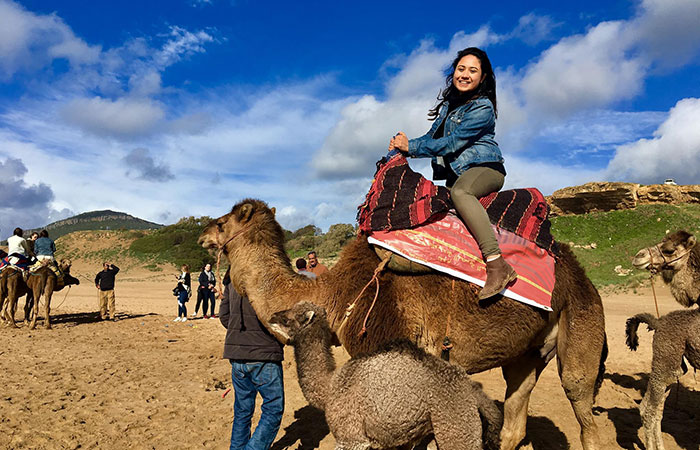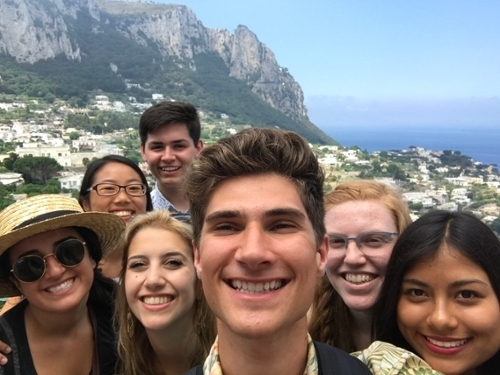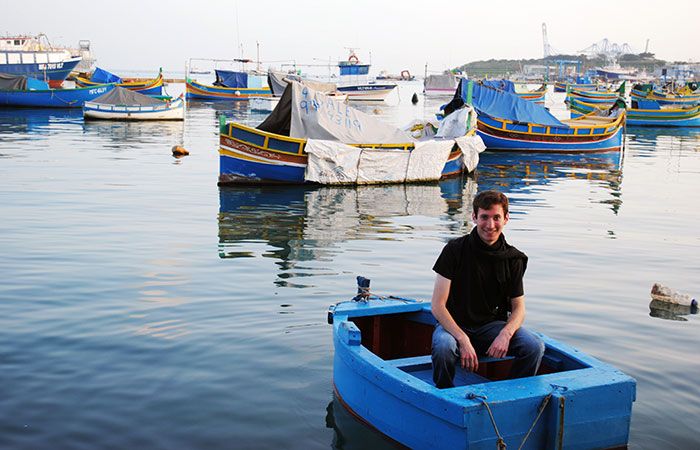by Sara Kowalski, Class of 2017, Humanities Fellow
This month, I will write to you about the numerous language and cultural offerings here at Rochester! Each week will focus on a particular language family or group. For example, this week I’m going to tell you all about ways to study and appreciate the languages and cultures associated with the Romance languages. (Yes, my background as a linguistics major is probably showing!)
The Department of Modern Languages and Cultures (MLC) houses four Romance language offerings: Italian, French, Portuguese, and Spanish. And the Department of Religion and Classics offers Latin, the original Romance language. You can discover these cultures outside of the classroom as well, by joining cultural organizations and/or studying abroad. Keep reading to learn more!
The Italian program within the MLC department offers courses in Italian language and culture. Like the sequences for most languages at Rochester, it begins with Elementary Italian I (fall semester) and Elementary Italian II (spring semester). Keep in mind that if you want to start studying a language in sequence, you must do it during a fall semester! However, if you already have some experience in the language, you may be able to test into a higher level.
And there are other ways to study the language outside of the regular sequence. For example, perhaps you just want to take IT 114: Conversational Italian. There are also courses such as IT 1001A: Beginning Italian or IT 153: Accelerated Italian, which are all taught abroad in Arezzo, Italy!
If culture is more your thing, you may want to take IT 202: Intro to Italian Culture. Then you may want to move on to Italian film, history, politics, art, and of course, literature! Whatever fascinates you most.
As of now, the Italian program only offers clusters and a minor, but there is still so much to learn. If you’d like to learn more, reach out to Donatella Stocchi-Perucchio (donatella.stocchi-perucchio@rochester.edu), the head of the Italian program.
The French program within the MLC department offers courses in French language and culture. Like the sequence for most languages at Rochester, it begins with Elementary French I (fall semester) and Elementary French II (spring semester). Remember, if you want to start studying a language in sequence, you must do it during a fall semester. And if you already have some experience in the language, you may be able to test into a higher level. Students of any level may benefit from FR 114: Conversational French, to work on their speaking ability, and more advanced students can perfect their speaking and writing skills with FR 155: French Conversation and Composition.
On the culture side of things, Rochester offers a variety of topics ranging from Historical and Imaginary Paris to French Social Thought. There is even a course entirely about Les Miserables!
Student can learn abroad as well, taking courses like FR 207: French in France, a month-long course held in Rochester’s sister city, Rennes, or FR 208: Francophone Studies, a four-week summer course in France or another Francophone country.
The French program offers a major, a minor, and clusters. Majors in the MLC department are required to take MLC 1: Introduction to Language, Literature, and Culture; CLT 200; and MLC 2: Major Seminar, in addition to their language-specific courses.
If you have questions, consider reaching out to Anna Rosenweig (annarosensweig@ur.rochester.edu), the undergraduate adviser for French.
The French Culture Club is a student group on campus committed to promoting the awareness an appreciation of the French languages and its various cultures. The main group also contains a conversation group for fluent French-speakers to be able to chat regularly with others in their native language.
Check them out on the CCC.
The classics department offers courses in Latin. Latin studies begin with Elementary Latin I (spring semester) and Elementary Latin II (fall semester). Note that this is the opposite of most other languages at Rochester, which typically begin in the fall semester. The Latin sequence must be begun in the spring semester. If you have previous experience, you may be able to test into a higher level.
In addition to the language, you may study the Roman classics ranging from Ovid (LAT 203) to Cicero (LAT 210). Or perhaps you want to tickle your funny bone with Roman Satire (LAT 224) and Roman Comedy (LAT 220).
The classics department offers clusters or a minor in Latin.
The Portuguese program in the MLC department is still very new and relatively small. Currently only three language courses are offered: Elementary Portuguese I, Elementary Portuguese II, and Intermediate Portuguese I. This is enough for a cluster for now, and hopefully the program will continue to grow in the future!
For more information on the Portuguese offerings, reach out to Teresa Valdez (tvaldez@ur.rochester.edu) who teaches the language sequence.
The Spanish program in the MLC department offers courses in Spanish language and culture. Like Italian and French, it begins in the fall with Elementary Spanish I and Elementary Spanish II (spring semester). So if you want to start studying a language in sequence, you must do it during a fall semester. If you already have some experience in the language, you may be able to test into a higher level.
There are also rigorous courses such as SP 153: Intensive Intermediate Spanish, or SP 162: Advanced Conversational Spanish, available in addition to the regular sequence. To decide which high-level courses are right for now, consider speaking with the undergraduate adviser in addition to taking the placement exam.
Language would be nothing without culture, and there are numerous Spanish cultural offerings as well. These courses are unique and have fascinating topics such as SP 218: Saints, Sinners, and Sovereigns in Medieval Early Modern Spain, or SP 260: (Re)Writing Gender in Spanish-American Literature.
As you scroll through the course offerings, the sheer number of courses may seem overwhelming. But on the bright side, you are sure to find courses that fascinate you! Since the Spanish-speaking world is vast, you will find courses spreading throughout history and across the globe: Spain, the Caribbean, Central America, South America, and of course, here in the United States!
The Spanish program offers a major and minor in Spanish, a minor in Latin American Studies, and various clusters. Majors in the MLC department are required to take MLC 1: Introduction to Language, Literature, and Culture, CLT 200, and MLC 2: Major Seminar in addition to their language-specific courses.
If you have questions, consider reaching out to Raul Rodriguez-Hernandez (raul.rodriguez-hernandez@rochester.edu), the head of the Spanish program.
The Spanish and Latino Students’ Association
SALSA is a community on campus that brings together students of Spanish and Latinx heritage and those who love Spanish and Latinx culture. They are dedicated to promoting awareness and appreciation of the rich, multifaceted Latinx cultures around the world.




